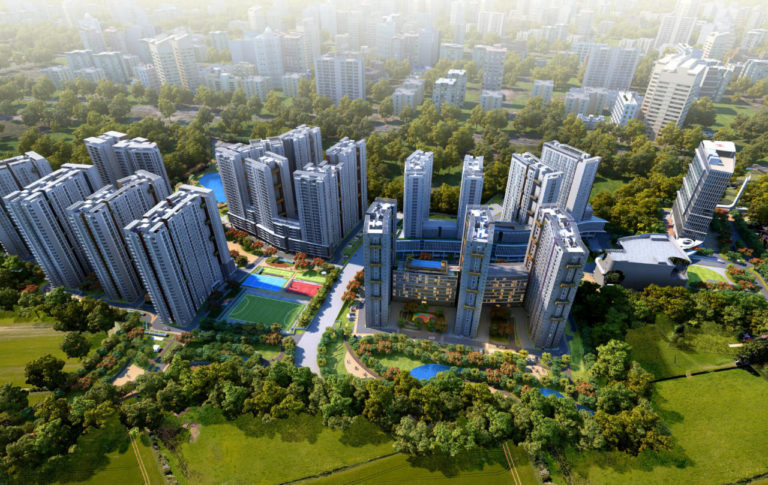Big players were always prepared for ‘new normal’ and pandemic made it certain
The real estate sector in India was looking at 2020 as the year of revival with a hope that consumer confidence for housing projects will be renewed. But the pandemic brought a tough time for the sector, which was already struggling with challenges like oversupply of inventory, lack of customer demand, economy and policy reforms. Also the fact that the urban job market has taken a big hit, the home buyers want to wait for clarity on their job security. However, the big players unknowingly prepared themselves for new market situations and implemented changes in their business practices in terms of marketing, sales, product design, and consumer interaction.

The new consumer sentiment is more aligned with trust in reputed developers, ready to move in projects, safety & health measures along with space utilization for ‘work from home’. Taking a proactive approach, many developers have already started reaching out to prospects consumers digitally and giving them virtual tours of the property. While these measures might be a new learning for small players, big players were already utilizing the digital and mobile technology to connect, converse and transact more. In the time of a pandemic, a technology enabled sales and marketing strategy not only assisted in staying connected with existing and potential customers but also helped in ensuring social distancing norms for everyone.
The ‘new normal’ has introduced the world to a new concept – work from home. Therefore, a certain consumer segment in urban clusters is also looking for spaces where they can make quick changes to their home to accommodate the new lifestyle. Consequently, the demand for larger homes has been growing significantly in mega cities like Mumbai, Delhi, Gurugram, Noida, Bengaluru, Hyderabad, Pune and Ahmedabad among others. Big real estate developers with their years of experience and insights into market trends saw it coming and developed residential projects and a number of lifestyle conveniences for work and personal life.

Also, integrated township projects will see a huge demand in the coming time as ‘work from home’ will also create the need for outdoor and fitness activities in a safe environment. Therefore, the residential projects with township concepts, swimming pools, community parks, medical shops, schools, grocery stores and gymnasium will attract more buyers in a post pandemic world. A number of big players are already offering such kinds of multifaceted and lifestyle-centric housing projects in the Mumbai region including Thane and Powai. In the near future, small developers might also focus more on accommodating health facilities like jogging tracks, gyms, sports arenas in their projects to gain immediate acceptability of the projects.
Needles to say that the real estate sector in India needs to brace itself for more challenges but with the right business approach and indigenous innovation, the companies can stay afloat in the current situation. The projects that are in the developing stage can be converted into projects that are aligned well with the new consumer sentiments. Big players already have a strong portfolio of integrated township projects with infrastructure that is required to live and work safely and conveniently in a post-pandemic era.
Note: I wrote this article for Adfactors PR, India’s top Independent PR consultancy.




